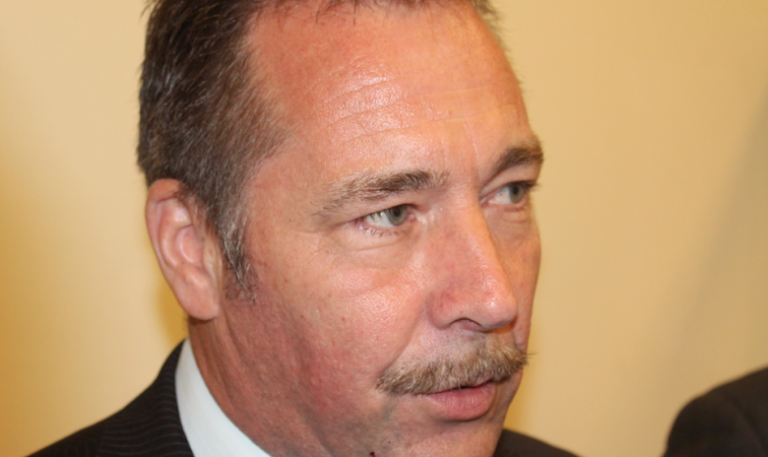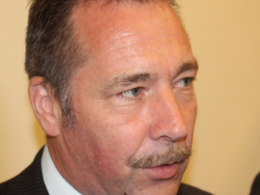Concerns over the undue influence of foreign experts have been cited as a key factor behind the police’s decision not to investigate the Vitals Global Healthcare (VGH) deal. The involvement of Irish and Serbian experts has caused unease, with critics questioning whether their prominent role and reliance on external narratives compromised the integrity of the inquiry. This influence, combined with concerns about media bias and language barriers, has raised serious questions about the impartiality of the investigation and its ability to uncover the full truth behind the controversial Vitals deal.
Concerns Over Language and Cultural Barriers
Questions about the foreign experts’ ability to accurately interpret the facts at hand have arisen, particularly due to language barriers within the court. Although both Maltese and English are official court languages, not all witnesses may have felt comfortable testifying in English. Corbin’s Voice was the first to highlight this issue, raising concerns that expert witnesses might have struggled with nuances in testimonies delivered in Maltese or relied on potentially inadequate translations.
It is known that many testimonies in the inquiry were given in Maltese, and these were translated for the foreign experts. However, whether all translations were translated, and whether the translations were sufficient to capture the intricacies of the case remains an open question. Were all testimonies translated rigorously? Or did linguistic challenges hinder the experts’ ability to fully comprehend the proceedings?
Carmen Ciantar’s Testimony under Caution

Carmen Ciantar’s involvement in the Vitals inquiry has also drawn attention. She testified at her own request, clarifying that she took up her position as CEO of the Foundation for Medical Services (FMS) in 2016, well after the Vitals deal had been signed. During her testimony on 22 June 2023, Magistrate Vella cautioned her that her responses could be used against her in future proceedings—a privilege not afforded to others who were eventually prosecuted. Nevertheless, both the police and foreign investigators eventually considered Ciantar’s role peripheral, with her testimony shedding little light on the core issues under investigation.
What has proven more intriguing, however, are the allegations of a potential frame-up targeting both Ciantar and then Deputy Prime Minister Chris Fearne. In July, Fearne asked the police to investigate a suspected attempt to frame them both. Ciantar’s presence in the inquiry now appears more significant in light of these allegations, which suggest external efforts to discredit Fearne and his allies. This development has shifted the narrative from Ciantar being a marginal figure to potentially being the victim of a calculated smear campaign.
Sittlington’s Questioning: Guided by Media, Not Evidence?

Sittlington was granted a leading role in the inquiry by Magistrate Vella, even being present during the questioning of witnesses and permitted to pose questions himself. This, however, exposed a vulnerability—his potential biases and motivations.
One of the most concerning aspects of Sittlington’s involvement in the inquiry is his apparent reliance on external sources, particularly local media reports, rather than strictly adhering to the evidence presented in court. A prime example of this was his erroneous reference to Carmen Ciantar as Chris Fearne’s personal assistant (PA), a position she never held. Fearne quickly corrected this mistake, clarifying that Ciantar had always served as the CEO of the FMS and had no administrative role as his PA.
“Sittlington kept referring to Ciantar as Chris Fearne’s personal assistant, a position she never held.”
This error is particularly noteworthy. Media outlets such as MaltaToday and Manuel Delia’s blog had referred to Ciantar as Fearne’s “aide,” a term that seems to have misled Sittlington. His questioning, influenced by these reports, raises concerns about the impartiality expected of an expert witness, who should base their inquiries solely on the facts presented during the case. By allowing external narratives to shape his questioning, Sittlington may have been influenced by preconceived notions formed by media coverage rather than a thorough and objective examination of the evidence.
Bias or Influence?
The reliance on external sources brings into question the neutrality of Sittlington’s role as an expert witness. While it is one thing for the general public to be swayed by media reports, it becomes deeply problematic when a court-appointed expert shapes their line of questioning based on media portrayals rather than inquiry evidence. This could have led to a distorted understanding of Ciantar’s role, possibly drawing undue attention to her and diverting focus from more critical issues surrounding the Vitals deal.
A source familiar with the inquiry strongly expressed their opinion that inquiries of this nature demand neutrality, and when experts like Sittlington allow external narratives to inform their questioning, it undermines the very purpose of their involvement. If the line of questioning is driven by media bias rather than facts, it risks compromising the integrity of the entire investigation. This concern is believed to have contributed to the police’s decision to adopt a largely passive role in the inquiry.
If this issue resonates with you or someone you know, please consider sharing this article on social media or sending it to a friend who might be affected. Your voice can help bring much-needed attention to this important topic.
Read more on Sittlington and the other experts after we sift through our readers’ tips. Bookmark Corbin’s Voice and drop by tomorrow, too. It won’t be serious stuff all the time, we promise.








